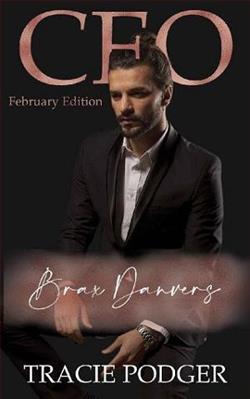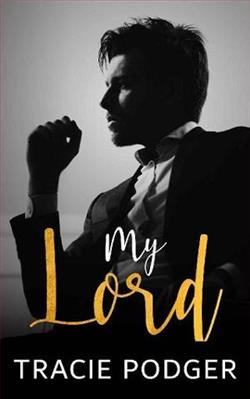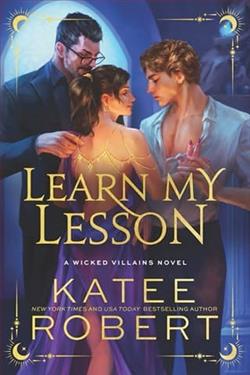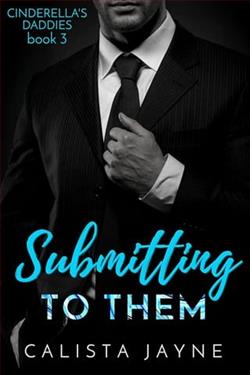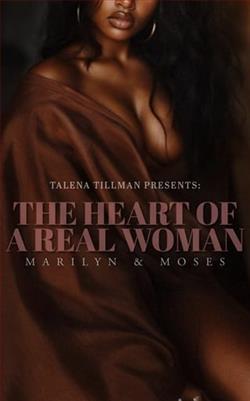Page 61 of Badlands
Don Alvaro, who had said nothing up to this point, spoke to Maria in their Indigenous language. Maria turned to Nora. “My father wants to know if the dinner is satisfactory.”
Nora assured him that it was very good and thanked them again for their hospitality.
A few more superficial questions followed, and then the old man asked—with Maria translating—why she was going tosee Benicio. Apparently the old man knew a fair amount about him—or, at least, appeared to.
Nora had already worked out the answer to this question in her mind. Although she hated to lie, she couldn’t tell the truth about the investigation: the strange deaths and other details would likely put people off. She told them she was an anthropologist, that she had read about Don Benicio in the famous book by Professor Oskarbi, and that for this reason she wanted to meet him herself.
When Don Alvaro heard this, he frowned, his face becoming impossibly wrinkled with displeasure and disapproval. He responded at such length that Maria grew uncomfortable.
When he had finished, Nora said to Maria, “Please translate directly—don’t worry about offending me. I want to know what your father said.”
Maria shifted in her chair. “My father says that Benicio is not a good man. He practices the old ways, the devil ways. He thinks you should not go to him for spiritual advice.”
“Why does your father think so?”
Maria translated. “He chews the devil’s root, and his ways are not that of a Christian. And, he says, he lives so far up in the mountains you will never find him, but fall off a cliff in your car. Besides, he has not been seen or heard of in several years. My father thinks he is probably dead.”
Nora frowned, then leaned forward. “Did Oskarbi tell you that?”
Maria translated, and the two of them looked back at Nora with blank expressions. “Who?”
“Carlos Oskarbi. One of Benicio’s followers was a man named Carlos Oskarbi. Do you know of him?”
Maria translated and the old man looked blank. “We have never heard of him.”
“What?” There had to be some mistake. “But he came down here over a decade ago. To join Don Benicio and to continue his… his discipleship. Perhaps you know of him, under a different name?” Oskarbi cut a charismatic figure that, she knew, would not be forgotten by the closest villagers.
The old man shook his head. “I do not know of any white man living up there—with him, or anyone else.”
This was beyond strange. “But this is the closest village to Don Benicio’s residence—right? He would need to come here for supplies.”
“Don Benicio left his house very rarely. In the old days, followers would bring him what he needed.”
“Followers?”
“Long ago there were many. More recently, only a few. But nobody goes to him now.”
“Did you know there was a book published about him, written by Professor Oskarbi?”
“I know of no book.” The old man hesitated, then spoke again, Maria translating. “You are clearly a good lady, so I want to tell you something. Please be careful. If he is alive, and you find your way to him: do not believe what he tells you. Be doubtful, do not give him money—and afterward, go to the church here and confess to the priest.”
She assured the old man she would be careful, and with that the dinner drew to an end. The family, clearly all early risers, began to prepare for bed—but not before the old man extracted a promise from Nora that she would let the older boy guide her part of the way to Don Benicio.
As she lay on the narrow, hardbancoin the dark, Nora feltsleep eluding her. Nothing Maria or the old man had told her aligned with her expectations—or what she’d understood to be the case. Oskarbi, as a disciple, must have taken up the reclusive, hermit-like ways of his teacher. She wondered about that teacher: if, assuming Benicio was still alive, he was the wise, Yoda-like figure depicted in Oskarbi’s book… or if he practiced the “devil ways” as the old man had said. Tomorrow, if all went as planned, she would finally meet him, along with the elusive Professor Oskarbi—and then she would know the truth.
34
THE DIRT TRACKthey were driving on ended abruptly. No sign indicated this was where the wilderness area began, but Skip could nevertheless see it on his GPS. Ahead, the land kept rising through shelves of yellow sandstone toward the rim of Gallina Canyon, a few miles distant.
Skip was not looking forward to the hike. Edison had insisted on bringing all kinds of unnecessary stuff in their backpacks, including the cannon-sized revolver, a machete, a trowel, and far more alcohol than they could ever hope to drink. But Skip had kept his mouth shut and, as a reward for his circumspection, was now stuck with a sixty-pound pack, which included his uke strapped on the back. Edison, for his part, had a swollen pack that probably weighed twenty pounds more. Skip was an experienced backpacker and he knew this was no way to proceed, but he felt intimidated and didn’t want to get into an argument with Edison over everything he’d insisted on bringing.
“Ahoy, Navigator! Which way?”
Skip consulted his phone. There was no cell reception, but he’d downloaded the USGS maps ahead of time. And the satelliteGPS connection was working well, showing where they were on the topo map. He consoled himself with the fact that it was not a long hike—six miles at most—and after the first gentle uphill part, it would be all downhill. There were no trails, but the ponderosa-and-fir forest along the rim had broadly spaced trees, and a ridge ahead of them, descending to the canyon floor, looked like a possible way down.
“This way,” he said.
Edison was in an expansive mood and took the lead, hiking fast along the ridgeline. Soon, views opened up into the canyon—a stunningly picturesque and dramatic rupture in the earth formed by the Gallina River. Skip could see it far below, a shining ribbon winding in sinuous curves and lined by gigantic cottonwoods. Beyond the grass-covered canyon bottom stood sandstone walls that glowed in red and orange bands, carved by time and water into otherworldly spires, slots, and alcoves.









